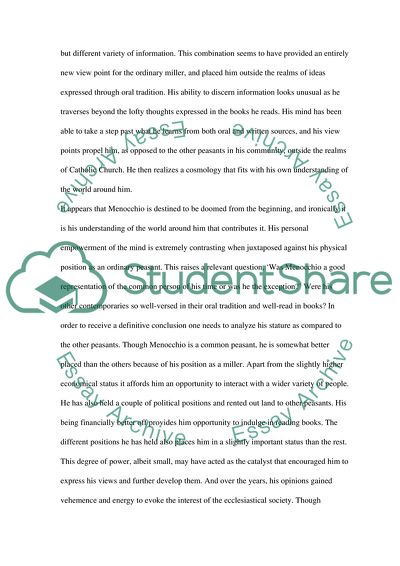Cite this document
(“The Cheese and the Worms by Carlo Ginzburg Essay”, n.d.)
The Cheese and the Worms by Carlo Ginzburg Essay. Retrieved from https://studentshare.org/literature/1537746-the-cheese-and-the-worms-by-carlo-ginzburg
The Cheese and the Worms by Carlo Ginzburg Essay. Retrieved from https://studentshare.org/literature/1537746-the-cheese-and-the-worms-by-carlo-ginzburg
(The Cheese and the Worms by Carlo Ginzburg Essay)
The Cheese and the Worms by Carlo Ginzburg Essay. https://studentshare.org/literature/1537746-the-cheese-and-the-worms-by-carlo-ginzburg.
The Cheese and the Worms by Carlo Ginzburg Essay. https://studentshare.org/literature/1537746-the-cheese-and-the-worms-by-carlo-ginzburg.
“The Cheese and the Worms by Carlo Ginzburg Essay”, n.d. https://studentshare.org/literature/1537746-the-cheese-and-the-worms-by-carlo-ginzburg.


